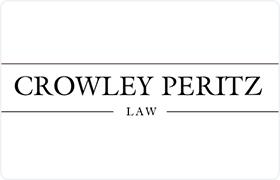Hamilton Criminal Lawyer, Virginia
Sponsored Law Firm
-
 x
x

Click For More Info:
-
Crowley Peritz Law
10560 Main Street Suite 501 Fairfax, VA 22030» view mapCriminal Defense Law Over 20 Years Of Combined Experience
Our lawyers are experts in a variety of misdemeanor and felony crimes. We understand that choosing the best criminal lawyer for your case is not a simple task.
800-916-2741
Thomas C. Soldan
✓ VERIFIEDCriminal, DUI-DWI, Traffic, Personal Injury, Litigation
Raised in historic Fredericksburg, Virginia, Tom attended Lafayette College in Easton, Pennsylvania. He obtained his undergraduate degree in History... (more)
Patrick Woolley
Criminal
Mr. Woolley has been a dedicated criminal defense attorney for over a decade. He believes in fighting for the rights of his clients and focusing on t... (more)
FREE CONSULTATION
CONTACTFREE CONSULTATION
CONTACTMark Lawrence Earley
Government Agencies, DUI-DWI, Criminal, Personal Injury
Status: In Good Standing
 Matthew Crowley Fairfax, VA
Matthew Crowley Fairfax, VA Practice AreasExpertise
Practice AreasExpertise


